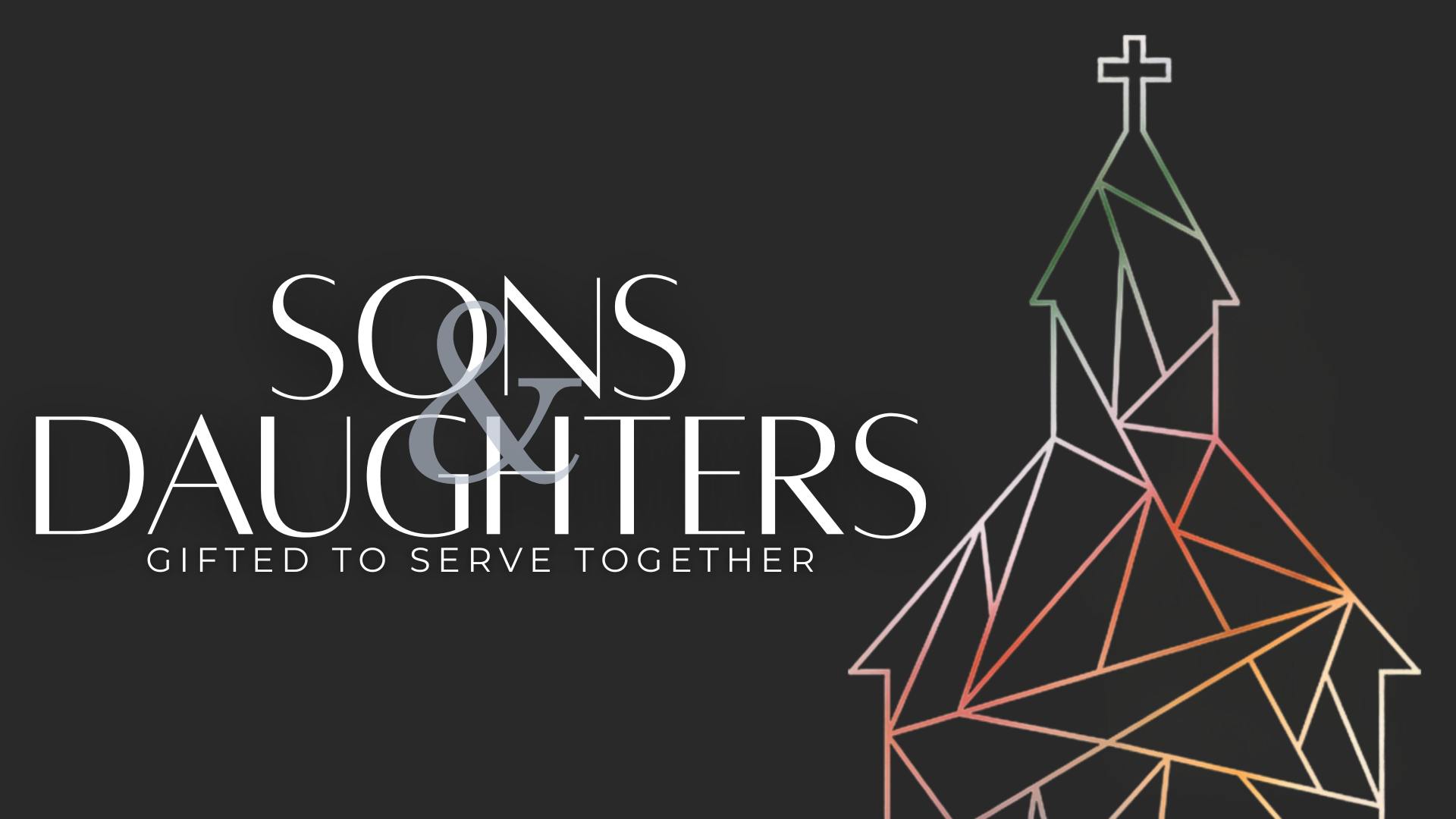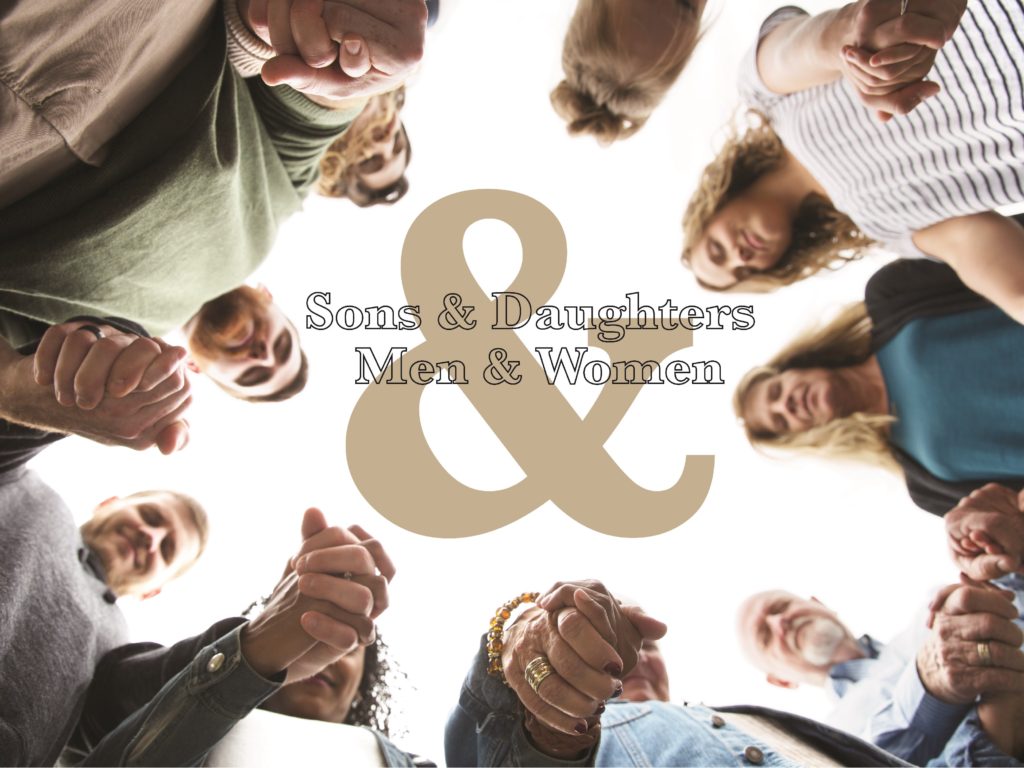As I have studied the Scriptures and the mission of God in a more narrative way over the past 26 years, as I consider context instead of proof-texts, as I view the Bible as the ongoing story of our God and his people, everything–all of it–connects so much more clearly now and makes a whole lot more sense. Jesus didn’t just die for my sins; God is doing something big and eternal in the world with all people. It started in Genesis 1, not Matthew; and it’s finally accomplished not in Acts 2, but in Revelation 22. He is breaking down barriers, he’s reconciling all people and all things, he is reversing the curse, he is abolishing the consequences of the world’s sins so we can live with him and with each other in perfect relationship forever.
When it comes to discerning the leadership and service roles for women within the Body of Christ, we have traditionally only looked at the four verses in the whole Bible that seem to restrict our Christian sisters: two verses in 1 Corinthians 14 and two verses in 1 Timothy 2. We have historically viewed the whole of the Bible through the lens of those couple of sentences, assuming that women cannot lead or serve publicly in the worship assembly, and reading and interpreting the rest of the biblical witness through that assumption. But those few verses need to be read and interpreted in the context of the overarching story of Scripture. Genesis 3 and 1 Corinthians 11 and Galatians 3 and Acts 2 all need to be considered as we draw lines and adopt rules and make determinations about God’s will for his people. The story tells us that men and women are created equally by God in his image, that his Holy Spirit has been poured out equally on all our sons and daughters, and those gifts are to be expressed equally in both private and public settings to his eternal glory and for the edification of his people.
I believe sin is what has distorted God’s will in these matters. I believe sin and fallen human nature are what have solidified the disparate gender roles in our churches. I believe God’s desire is that all men and women exercise their gifts and express their faith equally in his Church. And I also believe teaching this and leading this is difficult.
Our shepherds at the GCR Church here in Midland have made the decision, after several years of careful study and prayerful conversation, to affirm the Holy Spirit giftedness of our sisters when it comes to serving and leading in our Sunday worship assemblies. They have determined that, for too long, we have restricted women in ways the Bible never does. And they are shepherding us through this shift in practice with thoughtful teaching and pastoral care.
This page on our church website contains the statement our elders presented to the church on the matter this past Sunday, plus a schedule of Bible classes, sermons, and a Q&A-style conversation with the shepherds that are open to our entire church family. You’ll also find there the latest “GCR Family Update,” an introductory video/podcast on this move, with two of our shepherds and Ryan and me. It’s a really good start to what is certain to be a time of tremendous blessing and growth for our community of faith.
Personally, I am looking forward to the reconciliation: experiencing equal dignity and recognizing equal Spirit-giftedness at GCR.
I’m looking forward to a truer expression of the Gospel: living into God’s will and his call together.
I’m looking forward to our body growing together through the different perspectives and insights that are sure to come. The truth is, our sisters experience God and express their faith in God differently than most men. Hearing their voices and their hearts will open us up to broader understandings and new appreciations for our Lord’s love and grace and faithfulness.
I’m looking forward to clearing up the inconsistencies in our practices so our daughters and granddaughters, our wives and sisters, are equally encouraged and affirmed.
I’m excited to see the evangelism potential of what God is going to do as we remove a significant barrier to his Gospel.
And I’m really looking forward to the blessings. We’re going to hear the Word of God in ways we’ve not heard it before. We’re going to experience facets of God’s character we’ve never felt before. We’re going to pay closer attention to the readings and the prayers. We’re going to be moved differently. Our sisters will display their hearts and communicate God’s faithful promises and will in a way that most men just don’t. I’m looking forward to some of our older sisters limping up to the stage and praising God in prayer through their pain. I’m looking forward to our younger sisters serving my family the bread and the cup through their great joy. I’m looking forward to hearing some of GCR’s giants of the faith read the Word of God that dwells so deeply in their hearts.
God bless us. Together. And God bless GCR. May this move make us more available to our Lord’s transformation and mission, to being changed by him to love like Jesus. And may his holy will be done in and through his people here just as it is in heaven.
Peace,
Allan




Recent Comments